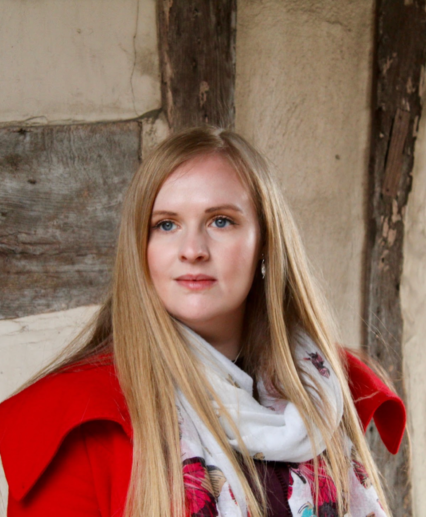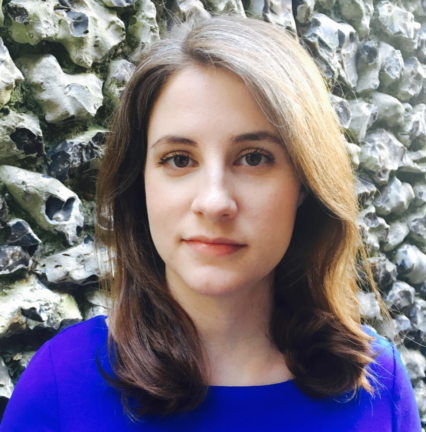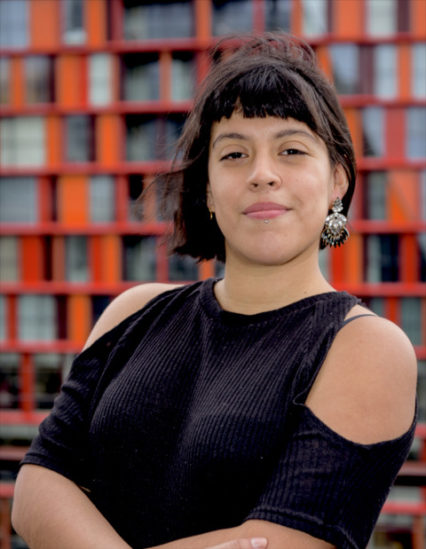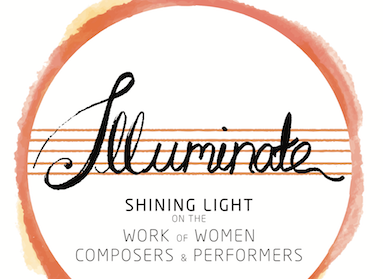Dr Angela Elizabeth Slater on continuing to shine a light on the work of women composers and performers in Illuminate Women’s Music 2019 Seasons I and II.
I first set up Illuminate Women’s Music in 2017 for the promotion of music, both historical and contemporary, composed by women. Illuminate Women’s Music also supports talented female performers, giving repeat performance opportunities across the UK.
2018 was an amazing first year for Illuminate Women’s Music. To begin to redress the gender imbalance in the UK classical music industry, Illuminate hosted a touring concert series that solely programmed music by women composers from the past and present. In 2018, Illuminate Women’s Music programmed ten successful concerts across the UK that supported five emerging women composers. We also programmed historical works by Amy Beach, Morfydd Owen, Marie-Louise Simon, Clara Schumann, Hilda Jerea, Grażyna Bacewicz and Lili Boulanger.

2018 marked a wonderful year for celebrating women’s music with new organisations, projects and individuals working with unwavering dedication and passion in this area. Examples include a number of excellent resources: Archiv Frau und Musik, Composer Diversity Database, Music Theory Examples by Women (MTEW), International Alliance for Women in Music (IAWM), The Daffodil perspective (a radio show dedicated to women composers), A Modern Reveal, Salon Without Boundaries and Illuminate Women’s Music’s own blog series as well, to name a few. There are also lots of wonderful festivals and organisations that have recently been established including Lili Boulanger Initiative, Scordatura, Sounding the Feminists and – new to 2019 – Cambridge Women’s Festival.
2019 also sees Kings Place’s new award-winning flagship series focusing on the creative firepower of women composers: Venus Unwrapped. Across twelve months and more than sixty events, this series will explore the history of music by women, beginning with medieval nuns and moving through to modern times. This series of concerts is a hugely welcome addition to the mission of bringing women composers to light.
2018 also saw many festivals across the world sign up to the PRS Keychange Initiative for 50/50 gender balance in programming by 2022. Subscribers include significant festivals in the UK, such as BBC Proms, Cheltenham Music Festival, Huddersfield Contemporary Music Festival, Spitalfields Music, and many more. This is a really significant step and one that we should celebrate.
Evidence of these developments can be found in the Women in Music survey, which shows positive change in BBC proms 2018 programming. In 2017 women composers only constituted 7.5% of all composers programmed at the Proms, whereas in 2018 saw this number rose to 14%. Representation of women composers in the living composers category rose from 22% to 40%, as did BBC Proms commissions of female composers which grew from 30.8% in 2017 to 63% in 2018. This is a huge shift that demonstrates a good statement of intent which will hopefully bring about real and substantive change in future programming.
However, surveys of 2018 programming were not universally positive. Bachtrack’s annual survey showed that only 17% of the contemporary music performed in UK concert halls in 2018 were by women composers, compared to Sweden that had 37%. Figures in other countries aren’t much better with 16% in the US and as low as 5% in both France and Germany, across a sample of concert programmes. Statistics compiled by Donne Women in Music Project show that across a sample of leading orchestras and concert series, only 76 classical concerts out of 1,445 performed across the world from 2018 to 2019 include at least one piece by a woman. These figures also show a total of 3,524 musical works will be performed at those concerts, and, of those, 3,442 (97.6%) were written by men and only 82 (2.3%) were written by women. To say that over 95% of concerts having music composed by men only shows that we still have a long way to go. These examples demonstrate how important it is to keep this issue at the forefront of the minds of musicians, programmers, festivals and music organisations.
During 2018, the centenary year of women’s suffrage, the issue of women composers in concert programmes has been a particularly hot topic. Many new initiatives and pledges have been made by a variety of organisations and this is to be celebrated. As we leave the year of the centenary of women’s suffrage behind we need to be vigilant that these commitments do not fall by the wayside or become less important as time goes on. This should be the start of a new approach, not simply a one-off in an anniversary year.
Illuminate Women’s Music, now in its second year of running its touring concert series, is proud to be continuing to support women composers from both the past and present as well as particularly supporting women performers. The reason I originally set up Illuminate Women’s Music is still more relevant that ever, with programming only changing very slowly. Related to this, change in the pedagogical sphere is moving at an even slower pace. It is vital that women composers are seen and heard by the general public across the UK; as Betty Atterbury notes, ‘Omission is a powerful teacher’. To make a lasting shift, we should seek change in our educational, programming and commissioning spheres.
Much of the concert-going audience, by their own admission, know very little about women’s music. This can be seen from Illuminate’s 2018 concert survey, which showed that 64% of Illuminate’s audience admitted to never having heard of any of the women composers on the programme before. By programming both historical and living women composers side-by-side in Illuminate concerts, I hope to continue to create a forum to celebrate creative women from across the ages. In the long term, I hope works by women composers will be considered as equals to canonic works whose places are safe in concert programmes. As our knowledge of female composers grows, continued omission is unacceptable; lack of a fair hearing leads to unjustifiable neglect. I hope through Illuminate Women’s Music, to begin to reverse the tide, even in a small way.
Illuminate Women’s Music will have two seasons in 2019, supporting even more women composers and performers than before. Before Illuminate’s official series started in March 2019 it collaborated with Royal College of Music London on a concert performed by their students on the 16thFebruary. The concert brought a rich programme of music by women composers together such as Thea Musgrave, Morfydd Owen, Elizabeth Maconchy and Illuminate composers in residence Sarah Westwood, Blair Boyd and myself to light. This will help bring repertoire composed by women to Royal College of Music’s audiences but also into the future programmes of these emerging performers. It is vital that performers know and dedicate themselves to this music as much as works from the traditional standard repertory. A shift in our pedagogical canon across all phases of musical learning has to be one of the most significant ways to support meaningful change so that women’s music gets a fair hearing by all.
Dr Angela Elizabeth Slater is founder and director Illuminate Women’s Music.
Illuminate composers in Residence

Illuminate Women’s Music is also delighted to announce its 2019 Season I touring concert series (March-September 2019), which is supported by the PRS Foundation Open Fund for Organisations. The first season of 2019 will be supporting women composers and performers with repeat performances across the UK and the USA. For their 2019 first season, Illuminate Women’s Music will commission five emerging women composers – Kerensa Briggs and Laura Shipsey – and Illuminate composers in residence – Angela Elizabeth Slater, Sarah Westwood, and Blair Boyd – to write new works for Boston-based Prismtrio. These new works will be premiered in Boston, MA, and further performed at Women Composer’s Festival of Hartford, CT. Several performances across the UK will follow, with visits to Brighton Music and Wine series at St Luke’s on 30thAugust, York Late Music series on 7thSeptember, 14thSeptember Music at St Mary’s in Stafford, and Stonevale concert series in Oxford 15thSeptember. Historical works by Morfydd Owen, Grażyna Bacewicz and Rebecca Clarke will be programmed alongside these new works. Highlights will include welsh composer Morfydd Owen’s 1915 piano trio, a work which has never been performed in the US and is little known in the UK, and Lili Boulanger’s D’un Matin de Printempsfor piano trio

Indeed, Illuminate Women’s Music is delighted to be supporting the promotion of Morfydd Owen’s music again in 2019. 2018 marked the centenary of Morfydd Owen’s death and therefore it is more important than ever to bring her music to audiences. In 2019 Morfydd Owen’s music will be performed across the UK at Ludlow English Song Festival in April, Llangollen International Musical Eisteddford in July and, excitingly, the Cardiff University Chamber Choir are planning to tour some of Owen’s choral music in China at the end of the year.
Morfydd Owen wrote two Piano Trios, one was premièred at University College, Cardiff, in May 1912 but has since been lost and the other, which will feature in Illuminate’s series, was premiered at the Royal Academy of Music in November 1915.
This surviving Trio is Owen’s most significant chamber composition and she reworked it to satisfy entry requirements for the Academy’s Battison Haynes Prize from existing scores including her piano pieces ‘Prelude after the manner of J. S. Bach’.
Illuminate Season II (September-November 2019) will see the formation of the Illuminate string quartet from performers Clarice Rarity (violin), Christine Cornwell (violin) Katherine Clarke (viola) and Cecelia Bignall (cello) who will also be joined by soprano singer Yfat Soul Zisso (a University of Cardiff graduate). Season II will commission Illuminate composers in residence as well as Caroline Bordignon, Yfat Soul Zisso and Joanna Ward. Illuminate Season II will start at University of Bangor’s Second International Conference on Women’s Work in Music on 5thSeptember, highlighting historical composers Rebecca Clarke, Barbara Strozzi and Clara Schumann. This is particularly significant as 2019 marks the (birth) anniversaries of composers Barbara Strozzi, Clara Schumann, and the 40th anniversary of the death of Rebecca Clarke.
Illuminate season II will then visit Birmingham (Centrala 12thOctober), Oxford (St Michael’s near Northgate 4thNovember), University of Huddersfield (7thNovember) and Emmanuel College Cambridge (9thNovember). In these concerts we are also looking forward to programming music by Ruth Crawford Seeger and her talented student Vivian Fine with her Four Songs for string quartet and soprano.
Illuminate Women’s Music 2019 concerts will showcase the rich and exciting variety in women’s music, rightly bringing this wonderful historic repertoire as well as new works to new audiences both in the US and UK! I hope you willjoin Illuminate for both our season I and II concerts this year to celebrate the music and work of women composers and performers.












